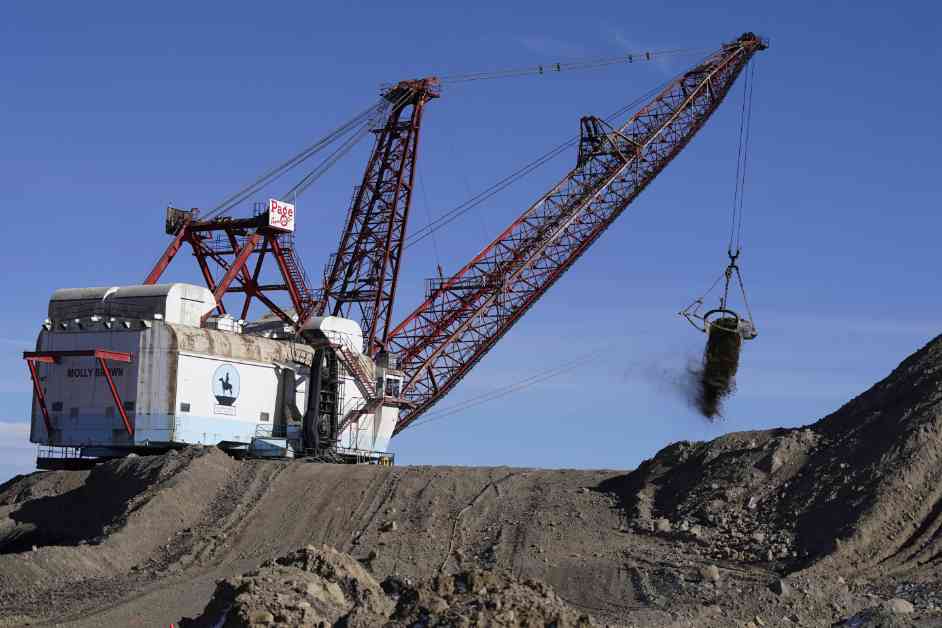Navigating Glencore’s Coal Decision and ESG Challenges
Environmental, social, and governance (ESG) investing has been a hot topic in the financial world for the past six years, attracting both investors and corporate executives. However, recent trends indicate a shift in the influence of ESG investing. While the core idea behind ESG is noble – promoting companies and investors to consider broader societal principles – its implementation has faced criticism for being overly stringent, leading to backlash from both investors and corporations. Glencore’s recent decision to retain its coal assets after consulting with shareholders is a significant development that signals a potential shift in the approach to ESG within the energy sector.
In November 2022, Glencore made headlines by agreeing to purchase the coal assets of Teck Resources. Initially, the plan was to merge Teck’s substantial coal assets with Glencore’s own coal assets and then divest them into a separate entity. The assumption was that each company would be valued more highly individually, particularly since Glencore, focusing on transition metals, would be free from the ESG stigma associated with coal. However, a reevaluation of this strategy revealed that retaining the coal assets would actually increase Glencore’s overall value. The coal assets were identified as strong generators of free cash flow with minimal additional investment required, prompting a shift in the company’s decision-making process. Additionally, the growing fatigue surrounding ESG considerations played a role in this reversal of plans.
Recent data from Morningstar indicates that ESG funds have experienced seven consecutive quarters of outflows. Poor returns and concerns about greenwashing have been cited as primary reasons for this trend. Corporate leaders and investment managers have also shown a shift in their attitudes towards ESG principles, with prominent figures like Blackrock CEO Larry Fink expressing varying perspectives on the topic. JPMorgan CEO Jamie Dimon has notably advocated for continued support for the oil and gas industry. Against this backdrop, Glencore’s decision to maintain its coal assets has garnered significant shareholder support, given the size of the company’s coal operations and the symbolic importance of defying climate activists’ vilification of coal.
Coal has long been a controversial energy source due to its high carbon emissions and associated environmental and health risks. Despite these concerns, global demand for coal has continued to rise, reaching a record 8.7 billion tons consumed in 2023. The developing world, particularly China and India, has been driving this demand growth, relying on coal as a primary source of electricity generation. The necessity of coal in meeting energy needs, especially in regions where access to reliable power is limited, underscores the complex dynamics at play in the energy transition debate.
While the environmental community remains critical of coal for its environmental impact, Glencore’s decision to retain its coal assets extends beyond mere profit considerations. By emphasizing the cash-generating potential of the coal operations, Glencore aims to fund opportunities in its energy transition metals portfolio, particularly in copper projects. This strategic approach highlights the importance of balancing economic realities with environmental considerations in the pursuit of decarbonization. The need for reliable and affordable power, coupled with the imperative of funding sustainable energy transition initiatives, underscores the complexities inherent in the energy sector’s evolution.
Critics of the fossil fuel industry have recognized the strategic rationale behind Glencore’s decision to maintain its coal assets, acknowledging that divestment may not necessarily lead to reduced global emissions. By committing to a gradual reduction in coal production and minimal investment in existing operations, Glencore aims to navigate the shifting landscape of energy transition while maximizing the value of its assets. This nuanced approach reflects a broader acknowledgment of the multifaceted challenges facing the energy sector and the need for pragmatic solutions that address both environmental concerns and energy security.
The evolving discourse around ESG investing underscores the need for a more holistic approach that considers the broader societal implications of business activities. While sustainable investing has gained traction as a more encompassing framework, the central role of climate change in shaping investment decisions remains paramount. Balancing the imperatives of addressing climate change with ensuring energy access for all underscores the complexity of the energy transition landscape.
In conclusion, Glencore’s decision to retain its coal assets amidst shifting ESG trends reflects a nuanced understanding of the complexities facing the energy sector. By prioritizing both economic viability and environmental responsibility, Glencore sets a precedent for navigating the challenges of decarbonization and energy transition. As the energy landscape continues to evolve, a balanced approach that considers the broader societal impact of business decisions will be crucial in shaping a sustainable future for the industry.
